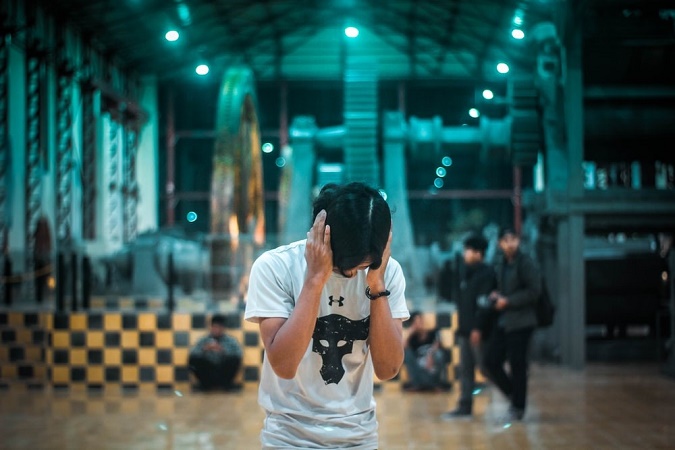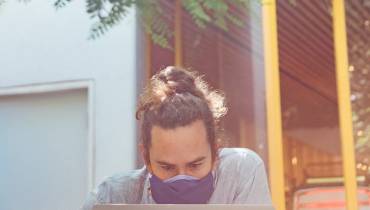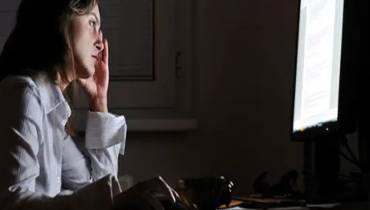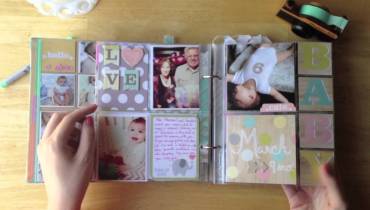The Impact of Working in Loud Environments on Your Hearing

Avondale shipyard worker wears special ear muffs for protection from the heavy level of industrial noise pollution. Photo: National Archives and Records Administration.
Each person is born with about 16,000 hair cells in their cochlea, which is a fluid filled structure in the inner ear. These hair cells allow your brain to detect sounds via a finely tuned process.
Sounds create vibrations, or waves that are funneled into your ear canal which cause your ear drum to vibrate. These vibrations are amplified by the three tiny bones in your middle ear.
The resulting sound waves then travel to your inner ear.
The hair cells in your cochlea are flexible, like blades of grass. They will bend and then straighten out in response to the vibrations, which converts them into electrical signals that are carried by the auditory nerve to the brain.
When you experience a loud environment, such as a concert, you might find your hearing affected. Afterwards, you might not be able to hear someone speaking at a normal volume. You might even have a ringing sensation in your ear.
These are symptoms of possible damage to the hair cells in your cochlea. Over the course of a few hours or days, your hair cells may recover and you’ll find your hearing goes back to normal.
However, sometimes the intensity of the sound causes the cells to bend too far, and they end up damaged. Some might even die. Over time, if you continue to expose yourself to loud noises, the damage will accumulate.
While you can lose between 30%-50% of your hair cells before you notice measurable hearing loss, unfortunately, once you can tell there is a problem, the affected hair cells have been destroyed and can’t be repaired.
This makes it important to protect your hearing, particularly if you work in loud environments.
Dangerous decibel levels
Noise levels are measured in decibels. 85dB (decibels) is considered the threshold. Generally, anything below this level is considered safe, but it’s best to allow a margin of safety.
If your workplace generally has noise levels of 80dB and above, talk to your employer about providing risk assessment information.
How can you tell how loud your environment is?
First, if you ever hear a noise that it physically hurts your ears, then you need to immediately leave the venue or stop the activity that is causing you pain. Assuming your environment is not painfully loud, however, how can you tell if it’s dangerous?
While there are decibel reader apps for your smartphone or tablet, they should only be used as rough guides. There are also a couple of low-tech ways to decide if your workplace is too loud.
Can you and a co-worker carry on a conversation while standing 6 feet apart? If you can talk normally, the noise levels are probably fine. If, on the other hand, you have to yell, chances are the noise levels are too high and you’d be wise to protect yourself.
Another indication of a problem is if, after a few hours on the job, you leave the premises and find you can’t hear properly, or you feel a ringing in your ears. These signs indicate your hearing has been damaged.
If you continue to work in those loud conditions without protecting yourself, you may end up with permanent and noticeable hearing loss.

Remember, the louder the sound level and the longer you are exposed to it, the greater the risk to your hearing. The length of time you can be exposed to a sound over 85dB without permanent hearing loss depends on how loud that sound is.
At 85dBs, the estimated safe exposure time to noise is up to 8 hours a day. Louder noise levels will lead to shorter exposure times, but it’s not a linear function.
Instead, the intensity of the sound (the energy the sound wave carries) doubles with each increase of 3dB, while the safe exposure time is cut in half. This means that if 8 hours is the safe exposure time at 85dB, then it’s only 4 hours at 88dB.
In many nightclubs, the music might be playing at 100dB. At this level, you’d only need to be exposed for 15 minutes to experience permanent hearing loss.
What can you do to protect yourself if you have to work in a noisy environment?
One way to care for your hearing is to wear earplugs or ear defenders whenever you are exposed to the noise. You can also try to reduce your exposure time by taking periodic breaks.
Complications of noise-induced hearing loss
Permanent hearing loss is the most serious complication of noise-induced hearing loss. However, there are many other side effects. These include high blood pressure, increased heart rate and an upset stomach.
Some people find that the ringing in their ears becomes a permanent condition called tinnitus. Others find they have trouble sleeping. This can lead to irritability and tiredness, which can also cause poor performance and a lack of concentration.
As you can see, it’s very important to be aware of the noise levels in your work environment, and to take protective measures if necessary.




















